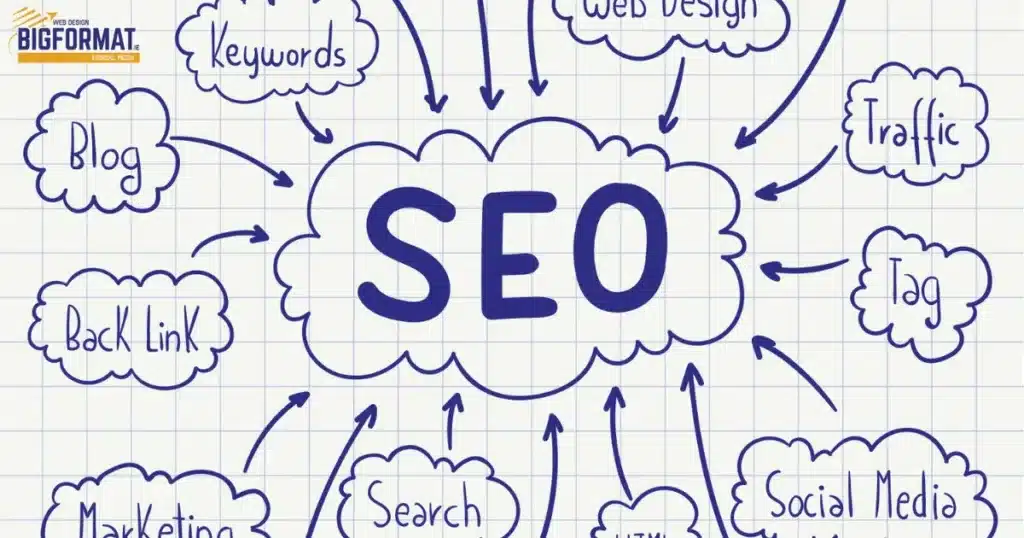
What is SEO? 7 SEO Strategies You Can’t Afford to Ignore
In today’s digital world, SEO (Search Engine Optimization) has become a crucial factor for any website or business looking to succeed online. But what is SEO exactly? SEO refers to the process of optimizing a website so that it ranks higher in search engine results, ultimately driving more traffic to the site. With search engines like Google constantly updating their algorithms, staying on top of SEO marketing strategies is essential to remain competitive.
In this blog, we will explore what is SEO, why it’s important, and the 7 SEO strategies you can’t afford to ignore if you want to improve your site’s visibility and reach. These strategies are aligned with the latest updates from Google, ensuring your site stays relevant.
What is SEO?
So, what is SEO? Simply put, it’s a set of practices that help search engines understand your content, making it easier for users to find. SEO involves tweaking both the technical aspects of your site (like loading speed) and the content itself (like keyword optimization). Google now places a heavy emphasis on delivering the most relevant and helpful content to users, making SEO more important than ever.
Why is SEO Important?
Understanding what is SEO is crucial for businesses looking to build their online presence. As search engines become smarter, SEO marketing continues to evolve. Ranking on the first page of Google is now more competitive than ever, and ignoring SEO could mean losing potential customers to competitors.
7 SEO Strategies You Can’t Afford to Ignore
Now that you understand what is SEO, let’s dive into the 7 SEO strategies that can help boost your rankings.
- Keyword Research One of the foundations of SEO is keyword research. Knowing the terms your audience is searching for helps you target the right content. Tools like Google Keyword Planner and SEMrush make it easier to identify keywords that align with your business. Remember to focus on long-tail keywords, which are more specific and have less competition.
- On-Page SEO On-page optimization is essential in ensuring that your site is structured well for both users and search engines. This includes using your target keywords naturally in titles, headings, meta descriptions, and throughout the body of the content. Make sure the user experience (UX) is top-notch, with clear, easy-to-read content that answers searchers’ questions.
- Content Quality Content is still king, but not just any content—high-quality, relevant, and engaging content that serves the user’s intent. Google’s recent updates prioritize fresh, informative content that provides real value.
- Mobile Optimization With over half of all searches now coming from mobile devices, having a mobile-friendly website is no longer optional.
- Technical SEO Technical SEO refers to the behind-the-scenes work that helps search engines crawl and index your site more efficiently. This includes optimizing page speed, fixing broken links, and creating an XML sitemap. Google’s latest algorithm updates have placed more emphasis on website performance, so technical SEO plays a significant role in rankings.
- Link Building acquiring high-quality backlinks from reputable websites is a key off-page SEO strategy. Google considers backlinks as a vote of confidence, helping to establish your site’s authority. Focus on building relationships with other industry leaders to get natural, high-quality backlinks.
- User Experience (UX) User experience has become a critical factor in SEO. Google’s Core Web Vitals update puts a strong emphasis on how users interact with your site. Factors such as page speed, interactivity, and visual stability directly affect your rankings. Ensuring your site provides a smooth, enjoyable experience will not only keep users happy but also improve your SEO.

Types of SEO and Their Importance
The types of SEO on-page, off-page, and technical are all crucial in building a strong foundation for your website’s optimization. On-page SEO focuses on the content and structure of your site. Off-page SEO involves strategies like link building, while technical SEO ensures that your site runs smoothly and can be easily crawled by search engines.
Each type plays a role in a successful SEO strategy, and knowing how to do SEO for each will ensure your site is fully optimized.
How to Do SEO for Your Website
If you’re wondering how to do SEO, start with keyword research, and build content around those keywords. Then, make sure your website is user-friendly, fast, and mobile-optimized. Focus on building relationships with other websites for backlinks and always monitor your performance using tools like Google Analytics and Search Console.
Conclusion
By now, you should have a clearer understanding of what is SEO and why it’s so important. Implementing these SEO marketing strategies will help boost your rankings, increase your website’s visibility, and attract more of the right traffic. Remember, SEO is not a one-time effort, it’s a continuous process that requires regular updates and monitoring to stay ahead in the ever-evolving digital landscape.
Get in touch for freindly advice
Whether you’re aiming to boost your brand or refine your digital strategy, we’re here to help you. Contact us today.

